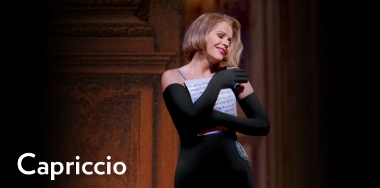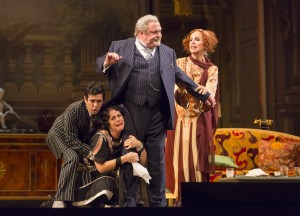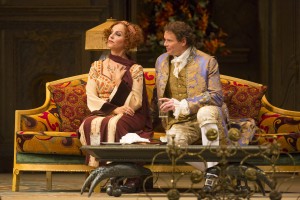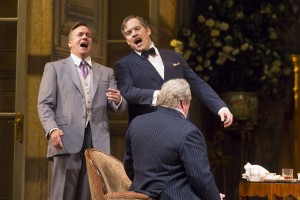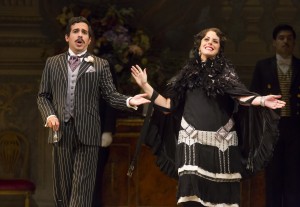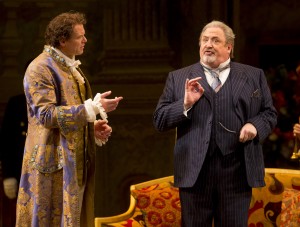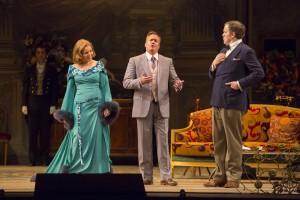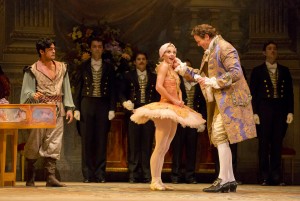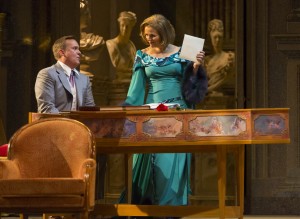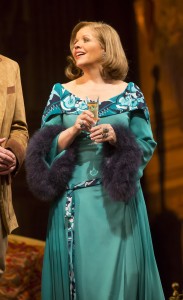THIS CAPRICCIO IS NO CAPRICE
The brooding romanticism of Capriccio’s opening sextet sets the tone for the introspection that is to follow. Instead of a dramatic overture and crowd-pleasing arias, composer Richard Strauss (1864-1949) aims to say something meaningful about opera itself. In that sense, it’s an incredibly self-conscious and self-referential work—postmodern even.
Essentially an opera about opera, Strauss’s complex and multivalent final opera both celebrates and subverts the artful combination of music, text, and stage. It looks forward and backward at the same time. By setting his final opera in the eighteenth century, Strauss can comment on the heyday of bel canto as celebrated by Christoph Willibald Gluck.
Yet by setting up an opposition between music and text, Strauss looks forward to its resolution by Richard Wagner in the nineteenth century, for Wagner famously wrote his own libretti as well as his scores. Capriccio, then, sums up and recapitulates the history of opera as seen by one of its last great composers. It’s as if Strauss is reflecting on both his heritage and on his own lengthy career.
The pretext for Strauss’s comments on opera is provided by the common trope of two suitors competing for the love of a woman. They are the poet Olivier and the composer Flamand, commissioned to write words and music for the Countess Madeleine’s birthday. Although tenor William Burden shines as the composer Flamand, both he and the baritone Audun Iversen (as Olivier) are upstaged by bass Peter Rose as the impresario La Roche. Not only does Rose seem to get more words in, words that convey Strauss’s musings on opera, but his powerful voice and rich tone cast warmth and vitality across the whole production.
As the widowed countess, famed soprano Renée Fleming puts only a smidgeon of her talent into the role, which she plays like a wallflower throughout the majority of the opera. Her acting is nearly non-existent and her singing sub-par; only about every fourth syllable is audible. It’s only when she’s alone on stage at the very end of the night that her star waxes bright. While seated at the harp, Fleming serenades the audience with that gentle, lyrical mode of singing that she used to such great effect in her justly renowned interpretation of Dvořák’s “Song to the Moon” from Rusalka.
Supporting roles are memorably filled by baritone Bo Skovhus as the countess’s brother and by mezzo-soprano Anne Sofie von Otter as the actress Clairon. Both Skovhus and von Otter prove that in opera good acting counts as much as beautiful singing. Under Peter McClintock’s direction (based on original direction by John Cox), a host of comic acts in Capriccio provide welcome diversion as well as illustrations of Strauss’s ideas about opera, which double as comments and interpretations. These include a fusty prompter, a pair of ballet dancers (choreography by Val Caniparoli), a delightful scene involving the servants, and an Italian duet aria sung by Emily Birsan and Juan José de León.
Lyric Opera’s production borrows Mauro Pagano’s sets and Robert Perdziola’s costumes from the Metropolitan Opera’s production earlier this year, which also featured Renée Fleming. It provides a strange mix of the story’s original 18th-century setting via the classically painted walls of the set’s interior, but dresses the characters in 1920s garb. While not unattractive aesthetically, such a transposition makes no sense from an artistic standpoint. Rather, it serves to distance the opera’s heated theoretical discussions by removing them from their historical context, thereby making them seem almost peripheral or incidental to the plot.
Just as Mozart’s Don Giovanni referenced Lyric Opera’s own distinguished history, it seems fitting that Richard Strauss’s Capriccio should follow, with its wider musings on the history and theory of opera itself. Fleshed out by the composer’s lush orchestrations, conducted by Sir Andrew Davis, and given voice by stars new and old, Lyric Opera’s Capriccio is a feast for the senses and the intellect.
Capriccio
Lyric Opera of Chicago
Civic Opera House, 20 N. Wacker Drive
ends on October 28, 2014
for tickets, call 312.827.5600 or visit Lyric Opera
for more shows, visit Theatre in Chicago
